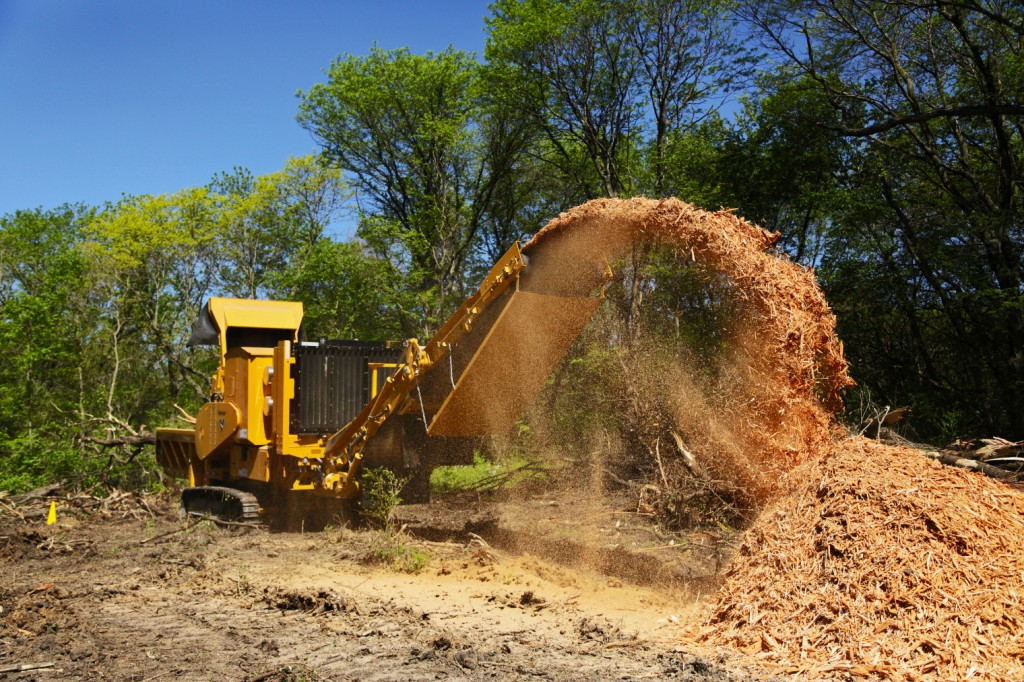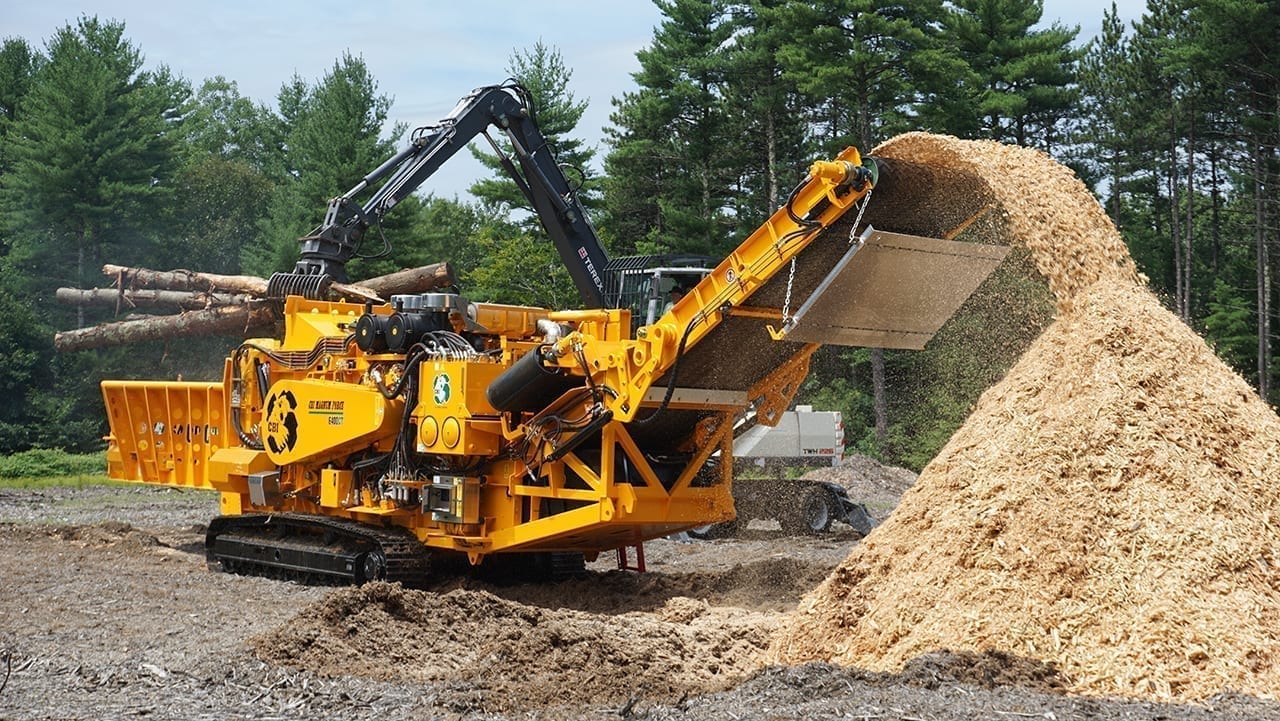Unlock the Potential of Recycling With Advanced Wood Grinders: Streamline Operations and Minimize Waste
In today's world, the need for effective waste administration and lasting services has actually ended up being significantly vital. One such remedy that holds wonderful promise is the advanced timber mill, an innovation that has the prospective to unlock the true capacities of recycling. By streamlining operations and decreasing waste, these grinders offer an unique method to tackling the challenges of timber waste processing. What precisely makes these equipments so powerful? Exactly how do they improve recycling operations and maximize source usage? And possibly most importantly, exactly how do they add to reducing our environmental footprint? In this conversation, we will discover the response to these questions and dropped light on the untapped potential of sophisticated timber mills in changing the recycling market.
Effective Timber Waste Processing
Efficient wood waste processing is crucial for enhancing recycling operations and making the most of the use of this important resource. Timber waste, such as lumber, lumber, and pallets, is a substantial result of various sectors, including building and construction, furniture manufacturing, and demolition. To efficiently take care of and reuse this waste, advanced timber mills have become an essential option.
Advanced timber grinders are developed to efficiently process wood waste into reusable products, such as timber chips or compost, which can be made use of for numerous functions. These grinders utilize powerful cutting devices and progressed shredding technologies to break down wood waste into smaller sized, extra manageable pieces. By decreasing the size of the waste, the mills promote much easier transport and storage space.
In enhancement to dimension decrease, progressed wood mills also play a critical function in separating contaminants, such as nails and screws, from the timber waste. This makes sure that the processed product is clean and complimentary from pollutants, making it appropriate for a variety of applications.
Reliable timber waste handling not just assists improve reusing procedures however additionally lessens waste. By handling and recycling wood waste, organizations can minimize their reliance on virgin resources, preserve energy, and decrease the ecological impact connected with typical waste disposal approaches.
Sustainability in Waste Monitoring
Advertising sustainable methods and ecological duty, waste management in the context of wood handling entails applying reliable and environment-friendly techniques. In today's globe, where environmental problems are at the leading edge, it is essential for sectors to adopt lasting waste monitoring practices. With the raising demand for wood items and the subsequent rise in timber waste, it has actually become necessary to discover cutting-edge solutions that lessen the effect on the environment.
By executing efficient wood grinding strategies, such as making use of advanced wood mills, the sector can substantially reduce the volume of waste produced. These mills are qualified of refining large quantities of wood waste right into smaller sized, extra manageable items, which can after that be repurposed or recycled.
Second of all, sustainable waste management focuses on reusing and reusing products whenever possible. Timber waste can be transformed right into valuable resources such as biomass gas or compost. By repurposing timber waste, the sector can minimize its reliance on virgin materials and minimize the demand for land fill room.
Lastly, lasting waste monitoring includes reducing the environmental influence of waste disposal. Timber waste that can not be reused or recycled should be dealt with in an eco accountable fashion. This might involve correct sorting and segregation of waste, along with making use of innovations that transform waste into power through procedures like anaerobic digestion or incineration with energy recovery.
Enhanced Recycling Workflow
To maximize timber waste administration and maximize recycling initiatives, the implementation of innovative timber grinders is important for boosting recycling procedures (wood grinders). These machines offer a variety of benefits that can dramatically enhance the efficiency and effectiveness of recycling processes
One of the essential advantages of sophisticated timber mills is their capability to refine a wide range of wood waste products. From cages and pallets to tree branches and stumps, these mills can efficiently damage down timber waste into smaller sized, extra convenient items. This not only promotes much easier transport and storage yet likewise enables the recycling of a greater quantity of timber waste.

Moreover, progressed timber mills are equipped with features that boost safety and security and decrease downtime. These machines are created to run successfully and dependably, minimizing the demand for upkeep and repair services. This allows reusing operations to run efficiently and regularly, inevitably raising efficiency and minimizing costs.
Making Best Use Of Resource Use
With the capability to successfully process a variety of timber waste materials, advanced timber grinders play a crucial duty in optimizing resource utilization within reusing procedures. These equipments are designed to efficiently convert timber waste into beneficial wood chips or mulch, which can then be made use of in numerous industries such as landscaping, biomass power manufacturing, and animal bed linens.
By using advanced wood mills, recycling operations can dramatically lower the amount of wood waste that ends up in garbage dumps, assisting to save beneficial landfill area and reduce environmental effect. The refined wood waste can be repurposed and used as a renewable source, adding to a much more lasting and circular economy.
In addition, advanced timber mills allow reusing operations to extract the maximum worth from timber waste materials. These devices have the capability to produce high-grade and consistent wood chips or mulch, which can be marketed as useful products out there. This not only generates income for reusing procedures however also produces opportunities for the growth of new markets and collaborations.
Along with making best use of resource utilization, progressed timber mills additionally add to the overall effectiveness of reusing operations. These machines are designed to handle large quantities of timber waste promptly and effectively, minimizing handling time and labor costs. They additionally have security functions and advanced modern technologies that make certain dependable and smooth procedure, decreasing downtime and optimizing productivity.
Reducing Environmental Footprint

Among the key advantages of utilizing sophisticated timber grinders is the production of valuable items from timber waste. These grinders have the capacity to convert timber waste into wood chips, compost, or biomass gas, which can be made use of in different industries such as landscape design, energy, or building and construction manufacturing. By transforming waste into useful products, these mills contribute to an extra lasting and circular economic climate.
In addition, advanced wood mills are geared up with sophisticated innovations that improve their performance and reduce power consumption. They are made to manage big volumes of timber waste in a brief amount of time, enabling recycling procedures to streamline their processes and increase performance. This not only minimizes the ecological impact of reusing operations yet likewise enhances the general efficiency of timber waste monitoring.
Conclusion
In conclusion, advanced timber grinders use a promising solution to unlock the potential of reusing by simplifying procedures and reducing waste. These mills enable reliable timber waste handling, boost recycling operations, maximize resource usage, and lower the environmental impact. wood grinders. By adopting these technologies, organizations can add to a more sustainable waste administration Continued system, guaranteeing the effective application of sources and lessening ecological influence
